Ethos in OSR+ decouples notions of good and evil in old-school “alignment.” Many players bristle at the thought of introducing alignment to the game, partly because they view it as an inadequate representation of the morality of their PCs, and a fictional straightjacket. It doesn’t have to be this way!
If you haven't read about ethos in OSR+, I suggest visiting the Core Rules and checking it out. Ethos is different than "alignment" in other trad games, even though there are nine ethos just as there are nine alignments. Ethos is an evolution of the concept of alignment: a way to localize notions of good and evil to individual perspectives, so that every perspective is meaningful and rooted in reason. Most importantly, ethos has a mechanical impact on play: when you fulfil the dictates of your ethos, you gain fate points, which let you take control of the narrative.
But I Hate Alignment!?
I'm sure you do! The big problem with alignment in "The World's Greatest RPG" is that it was neither consistent in its definition across editions, nor precising in its language. This led to everyone having a different idea as to what "good" and "evil" and "law" and "chaos" means. Every argument you have online about alignment will devolve into a pointless cacophany of equivocation for exactly this reason.
In fact, in a premium episode of Worldbuild with Us, I tried to outline the evolution of the nine alignments as they evolved and emerged throughout editions of Dungeons & Dragons. Spoiler alert: knowing how it evolved does not help people come to any more of a consensus of it than not.
Anyhow: I write the above because I want you to forget about what you know about alignment.
Ethos in OSR+ is not alignment.
A Guardian is not a Lawful Good character, though there are similarities in how a Lawful Good character and a Guardian might behave. I believe, deep down inside the minds of the people who originally designed the axes of good and evil and law and chaos, they were (consciously or subsconsciously) onto something great. Something that could actually model, in the game-world, real-world moral dispositions. Thus ethos emerges from that primordial scaffolding.
Onto the Experiment...
What follows is a thought experiment that attempts to illustrate how characters of differing ethos might approach a moral problem from their points of view in OSR+. We’re assuming in this thought experiment that the characters are operating in a setting where the GM has defined “good” to mean altruism, and “evil” to mean egotism, so whenever the terms “good,” “evil,” or “right action” are mentioned, these are synonyms for those moralities.
The Scenario
A population of orcs have infested a nearby valley. The valley is a crucial access point between the local town and vital resources the town needs to survive. The orcs are man-eating and violent, but they are not incarnations of evil as might be the case in a Tolkien fantasy: instead, they are living things with sentience just like the PCs, albeit of animal-like intelligence. It is believed the orcs have a culture of their own, although attempts to reason or coexist with them have failed. For the sake of this thought experiment, let’s establish that the orcs (as a community) are motivated by self-interest, and that while there are fewer than them than the villagers, the orcs are extremely pernicious and territorial, so that it does not stand to reason that there might be hidden reason(s) why the villagers might be the real threat.
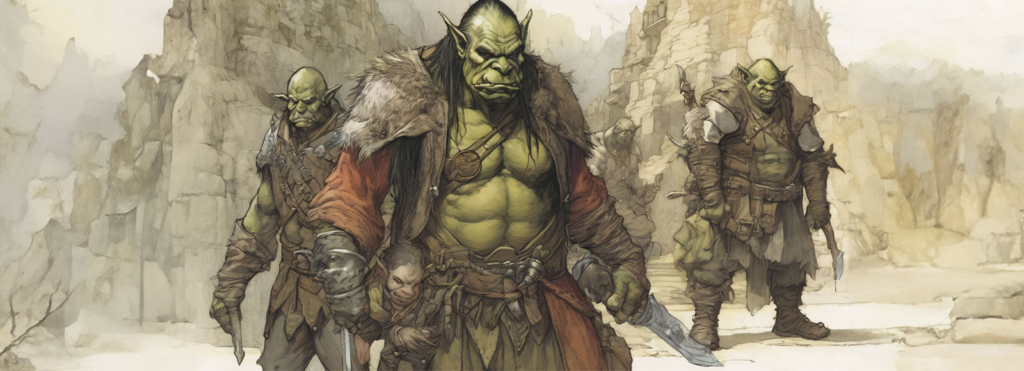
The PCs are tasked with solving this problem, and time is of the essence, as the people of the town will soon starve to death. While there are of course many different ways the PCs could approach this problem without resorting to violence, in our scenario, our PCs conclude there is no other option to save the town except by flooding the valley and thereby drowning all the orcs.
This exercise describes how each ethos might consider the problem.
The Nine Ethos
The Guardian (Faithful Altruist)
You refuse to violate your moral code, even if it means putting yourself or others in danger.

The Guardian is an altruist who acts on principle. He doesn’t think wantonly murdering all the orcs is “right action,” because part of his Faithful ethos is that all living things deserve due process, even if they themselves do not adhere to his Faithful principles. He also doesn’t believe in taking the law into his own hands. He acknowledges that a desirable outcome of drowning the orcs would be that the town does not starve, but to him committing to right action matters as much as the consequences of that action. The Guardian deems that the plan privileges the lives of the town over that of the orcs, and only out of pure convenience, which violates his moral principles. It would be better if he could round up the orcs and present them for punishment by the local municipality, or exile them from the valley. Even open combat with them would be preferable, because then at least they have an opportunity to yield and reconsider their selfish behavior. As a result, the Guardian might refuse to participate in the plan, or consent with grave knowledge that what he is doing is evil.
The Champion (Brave Altruist)
You break the rules in order to help the most people you can, even if it means dire consequences for all involved.
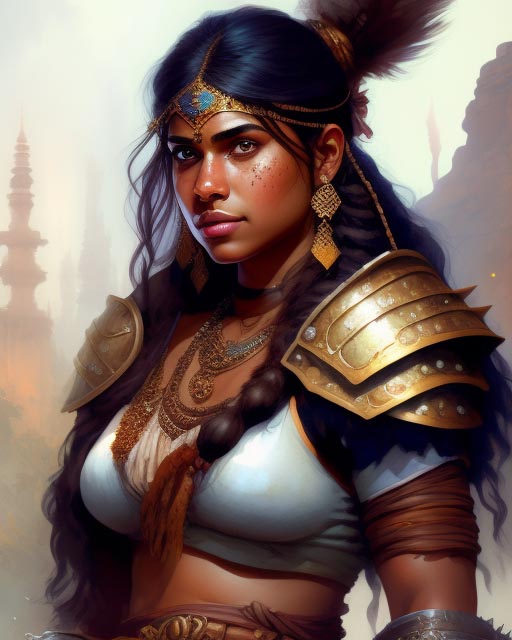
The Champion is an altruist who cares more about the consequences of her actions than following moral principles (her ethos is Brave). From her perspective, there are more villagers that are going to die from starvation than orcs, and the orcs also have a penchant for eating villagers. Whether it’s because of their culture or their animal natures, they’re behaving rather selfishly by doing so, and selfishness is evil. The Champion prioritizes the well-being of the villagers because she can generate more good overall by protecting them instead of catering to the orcs’ safety. While she acknowledges that the orcs are sentient beings with a right to life, she is not opposed to taking matters into her own hands, even if that means using violence to deal with them. In an ideal world, the Champion would agree with the Guardian that it’s better to relocate the orcs or round them up to face justice, but the Champion believes in the “greater good,” and feels compelled to act since she has weighed the consequences.
Benefactor (Balanced Altruist)
You choose to help someone in need when no one else will, putting yourself on the line.
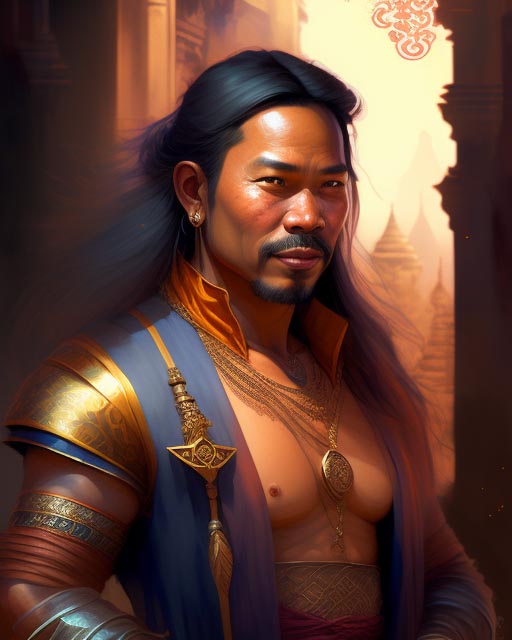
While the Benefactor cares about the welfare of others because he is an altruist, he doesn’t think you can get to right action purely from moral principles, and thinks the Champion’s “greater good” calculation isn’t the end-all-be-all for deciding how to act justly (such a point of view is Balanced). He also doesn’t think the orcs are justified in being killers, just because they’re orcs. In this scenario, the Benefactor might feel as conflicted as the Guardian, but not because he’s convinced that drowning the orcs is wrong, but because he’s not convinced the Guardian and the Champion are right.
Arbitrator (Balanced Skeptic)
You stand up for someone whose beliefs you don't agree with, even if it means endangering everything you hold dear.
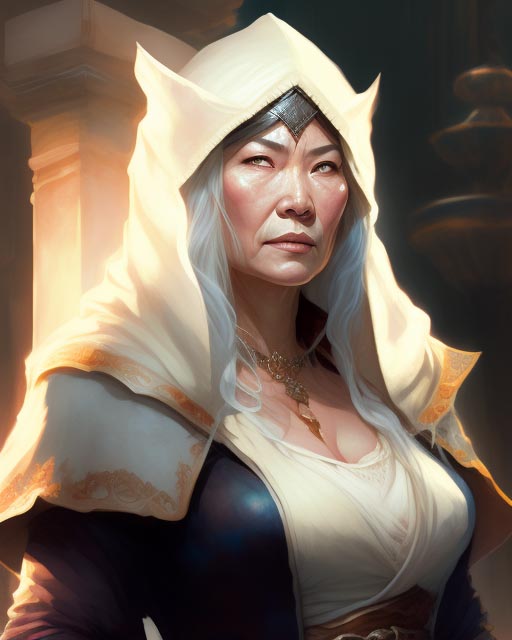
The Arbitrator rejects altruism and egotism as good and evil because morality only has meaning from a certain cultural perspective (she is a Skeptic). The orcs aren’t evil because selfishness isn’t evil, and the villagers aren’t good because altruism isn’t good. She does look to certain moral imperatives to determine right action like the Guardian, particularly the law of noninterference with other cultures, but she also does sometimes weighs the consequences of her actions like the Champion (her ethos is Balanced). The Arbitrator might ask herself: Why do we value the welfare of the villagers more than the welfare of the orcs? The two cultures have very different values. While orcish culture expresses itself through violence and selfishness, those qualities are only undesirable from the perspective of the villagers, and vice versa. The real tragedy here is that orcish culture and villager culture are forced into conflict because of this valley. It is wrong of the orcs to interfere with the right to life and liberty of the villagers by killing them in the valley, and it is also wrong to deprive the orcs of life and liberty by drowning them all for doing what is justifiable from the perspective of their culture. After all, anthropologically we know orcs like to eat human children, it’s totally normal for them to do so and we have no right to fault them for that. Like the Guardian, the Arbitrator may feel that her hands are tied in this scenario. She might choose to warn the orcs of the incoming flood, or she might refuse to participate in the plan because it’s tantamount to genocide.
Judicator (Faithful Skeptic)
You do what must be done according to the dictates of your religion or creed, at great risk to your life or reputation.
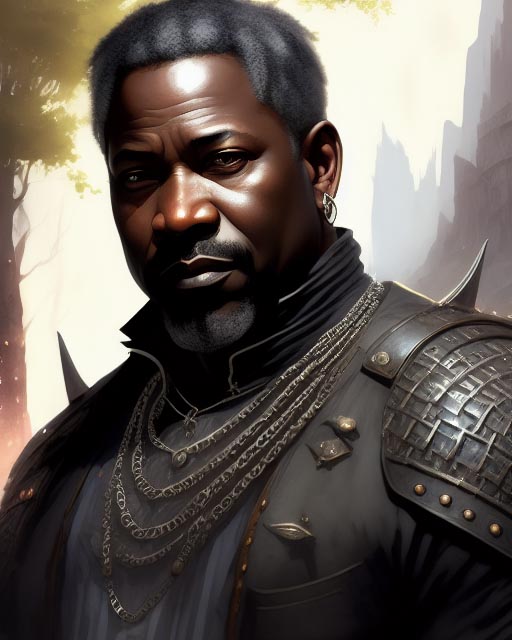
Like the Arbitrator, the Judicator rejects altruism and egotism as good and evil because morality only has meaning from a certain cultural perspective (he is a Skeptic). However, the consequences don’t matter to him in determining what is right action as much as those moral imperatives he derives from the “law.” In this way he is “Faithful” like the Guardian, but the difference between the Guardian and the Judicator is in where they derive the authority of their moral imperatives. We can take “law” here to mean law as in a legal sense, but it can also mean law as in a divine sense. That is, a religious person does not derive the ultimate authority of their moral imperatives from reasoning alone—they derive that authority from God (i.e., it is evil to drown people not because we’ve arrived at that conclusion by way of reason, but because God says it is). In the same way, a special agent like James Bond does not justify his assassinations on the basis of any moral reasoning, assassination is justified because the Queen’s laws dictate it. Therefore in our scenario, the Judicator can’t be bothered to compare the welfare of the town vs the orcs. The decision to flood the valley hinges on whatever “law” he follows says. If he is an agent of the neighboring kingdom, for example, that law might dictate that all orcs must be exterminated, regardless of the consequences or circumstances, for the safety of the realm. If he is a cleric who follows a God of Mercy that dictates strict pacifism, he might be forced to refuse to participate in the plan, or compelled to interfere with it in order to save the orcs for the same reason.
Radical (Brave Skeptic)
You revolt against a system that lacks authority over you, even if it costs you dearly.
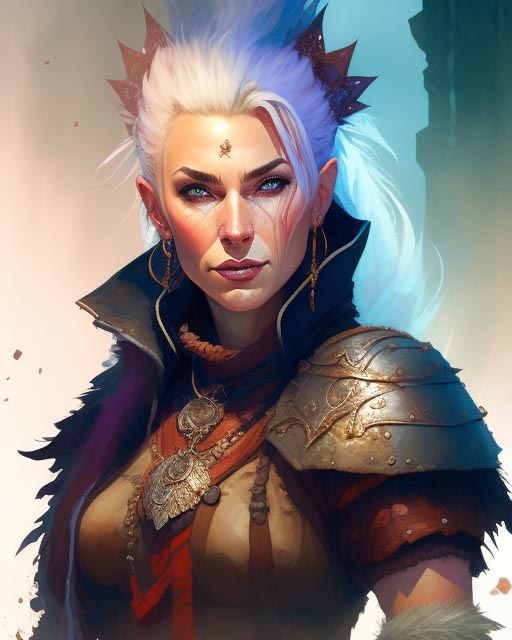
The Radical rejects altruism and egotism as good and evil because morality only has meaning from a certain cultural perspective (she is a Skeptic). All that matters to her are the consequences of her actions (her ethos is Brave). On paper, the Radical is an existential nihilist, in that she believes life has no intrinsic meaning or value. Instead, it is up to the actions she takes as an individual to give life meaning and value. Neither the villagers nor the orcs have a right to exist given to them by moral law, and the behavior of either side cannot be justified on any moral grounds, because there is no moral grounding to anything. The Radical might agree with the Champion that we might as well flood the valley and kill all the orcs if she has some other reasons for siding with the villagers. Maybe she values the unique art the villagers produce, and so doesn’t want them all to starve to death? Or maybe she thinks drowning a whole encampment of orcs is dishonorable and cowardly, because she comes from a culture of barbarians who prefer to face threats head on. The Radical has reasons, and outcomes matter to her, it’s just that her reasons aren’t necessarily rooted in selfishness or a duty to protect others, and they’re definitely not grounded in moral imperatives, because she doesn’t believe in such things.
Esurient (Balanced Egoist)
You betray a friendship because it's no longer beneficial to you, creating a new enemy.
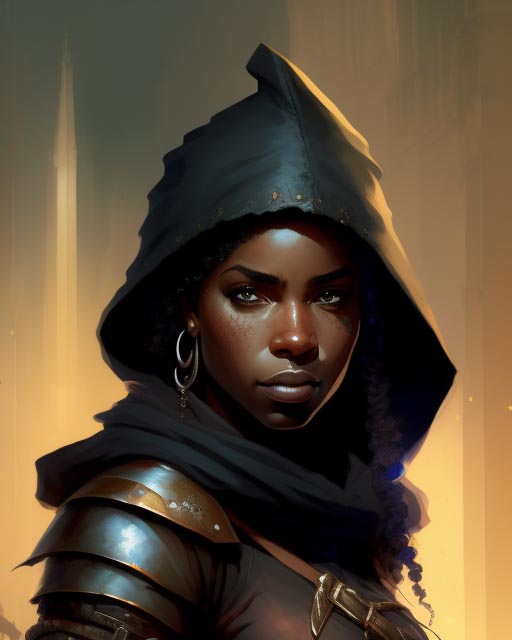
The Esurient thinks that to pursue his own self-interest is right action, because people only ever act out of self-interest (he’s an Egoist). He redefines “altruism” to mean enlightened self-interest. He shares a lot in common with the Arbitrator, in that he believes in the moral imperative of noninterference, specifically because it promotes the pursuit of personal happiness. For this reason, he tries to avoid violating the right to life and liberty of others, but also weighs the consequences of his actions, to ensure that he isn’t getting the short shrift in any transaction. In this way, his ethos is “Balanced” like the Benefactor. When it comes to the matter of drowning the orcs, the Esurient asks himself how he even got caught up in this situation in the first place. How does it benefit him to put his reputation and safety on the line, to wipe out an entire encampment of orcs in order to benefit these villagers, who are too weak to defend themselves? The Esurient may find the whole affair distasteful, because the orcs, while violent and nasty, seem self-sufficient, and might deserve this valley more so than the pitiful villagers who rely on outside help to survive. Then again, what if wiping out the orcs leads to more orcs showing up and finding out who was responsible for the flood? It’s also possible that the Esurient has personal ties to the village which matter to him greatly, and for this reason his desire to help the villagers is rooted in self-interest. As a result, drowning the orcs might be the “right” course of action for him.
Mastermind (Faithful Egoist)
You make it easier for others like yourself to get ahead, even if it puts you at risk of being exposed.

The Mastermind, like the Esurient, thinks that to pursue her own self-interest is to take right action (she is an Egoist), but she takes things a step further: she believes she has a moral imperative to do what is in her own self-interest (this is what makes her Faithful). To the Mastermind, altruism is an evil burden, because it is impossible to harbor a genuine concern for the welfare of others. People who say they are acting out of genuine self-interest are delusional, or in the worst case, liars. Masterminds may abide by other principles that support or expand upon their philosophy of ethical egoism, but this mantra is the fulcrum by which their moral reasoning hinges. With respect to the orcs, the Mastermind does not take pity on the villagers because she cares about their welfare: if he advocates for drowning the orcs on their behalf, it might be because it benefits working-class adventurers like herself to eliminate a threat that interferes with commerce in the realm. After all, the highest good for the Mastermind is to enable ambitious folk like herself to excel in a world full of vicious orcs and weak villagers (e.g., a rising tide lifts all boats). At the same time, she doesn’t want to set a precedent for subsidizing the existence of a township that can’t support itself against local threats. In a way, she admires the orcs despite their nastiness, as they are fulfilling her moral imperative to do what is in one’s own self-interest. The only problem is that the orcs’ ambition might get in the way of her own.
Megalomaniac (Brave Egoist)
You take what you want to maximize your personal gain, even though your greed dangerously isolates you.
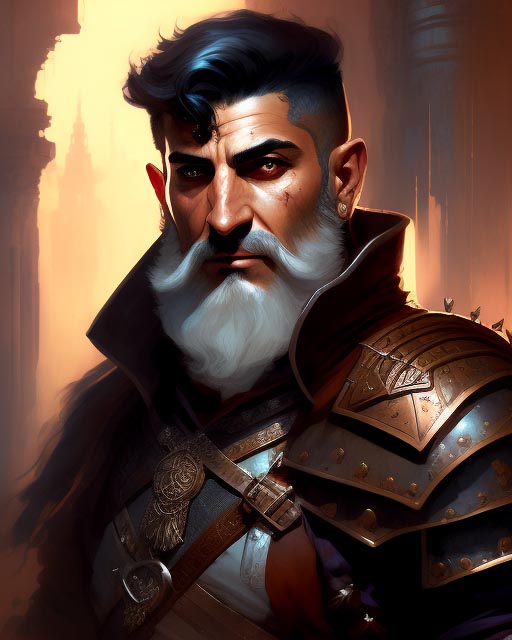
The Megalomaniac came into this orc situation because he saw an opportunity to profit off extorting the villagers for aid while simultaneously eliminating a threat to his mining business on the other side of the valley (he’s an Egoist). He couldn’t care less about altruism and agrees with the Mastermind that duty to others is an evil burden, however it’s not important to him to encourage people to act on their own self interest—what he cares about are the consequences, specifically, how much bank is he personally going to make from this operation, and how quickly (his ethos is Brave). In fact, he thinks it’d be better for him if everyone else behaved selflessly, because then he’d have a better opportunity to take advantage of their generosity. The Megalomaniac is just as happy to drown the orcs as he is to let them completely overrun the town, so long as the outcome is in his favor. He’s not an idiot, of course: he realizes that fraternizing with orcs is frowned upon by the mostly law-abiding inhabitants of the realm, so it’s probably in his best interest to drown the orcs. As for the Arbitrator and the Judicator: the Arbitrator is likely to sit things out, but if he’s stupid enough to try and warn the orcs, the Megalomaniac knows who he can pay to have that pesky anthropologist offed. The Judicator, on the other hand, can be reasoned with on his own terms (and if not, the same fate as his ally awaits). The Radical is unpredictable, since it’s hard to get a read on what he cares about, but he’ll be outnumbered if he dissents, as we’ll soon see. The Benefactor and the Esurient are weak-minded and cheap (in that order): the latter will fall in line once the Mastermind realizes that the Champion has won over the Guardian, and the former will agree with whatever opinion has the most support, out of fear for his personal safety. So the Megalomaniac’s strategy is likely to support the Champion, by pretending to agree with him about the “greater good.”
What would you do if you had to drown the orcs?
Do you find yourself agreeing with any of these perspectives?
(If you agree with certain ones though you should probably seek psychological help.)
 Archetypes
Archetypes Armor
Armor Classes
Classes Conflicts
Conflicts Cultures
Cultures Ethos
Ethos Flaws
Flaws Glossary
Glossary Kits
Kits Maleficence
Maleficence Origins
Origins Shields
Shields Skills
Skills Spells
Spells Stances
Stances Status Effects
Status Effects Tactics
Tactics Talents
Talents Techniques
Techniques Treasure
Treasure Weapons
Weapons











 Hall of Heroes
Hall of Heroes Hall of Legends
Hall of Legends



 Dungeons & Flagons
Dungeons & Flagons
0 Comments on
Drowning the Orcs